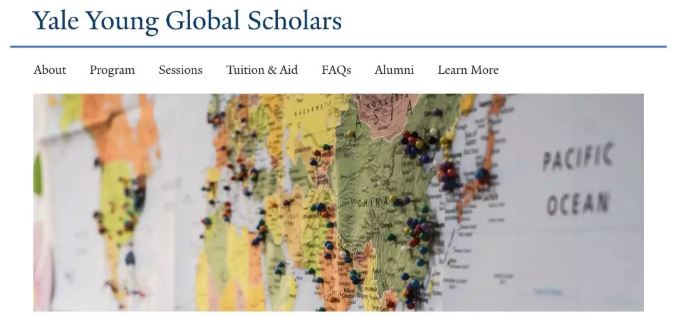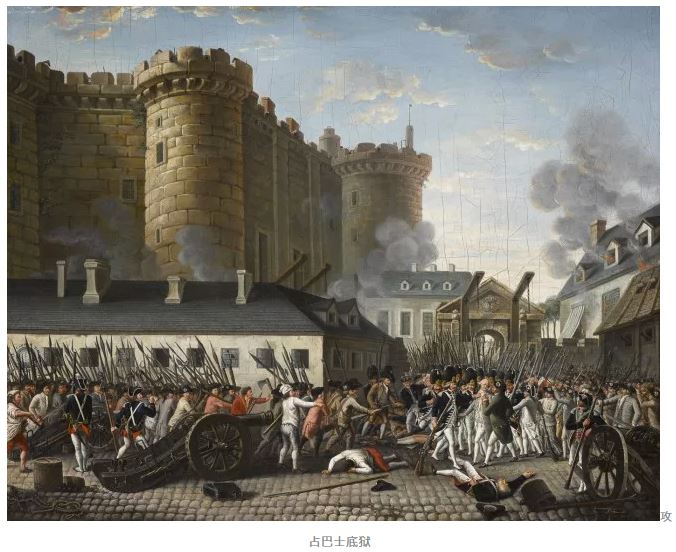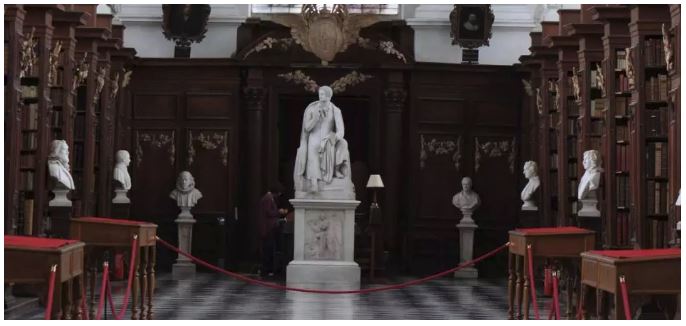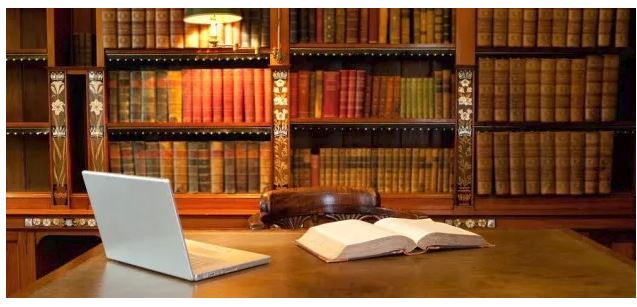“哥大的ED刚刚出结果了!”微信群里弹出一条新信息。
坐立不安的爸爸立马“黑”进James的邮箱去查询录取结果,而此时的James正悬于半空之中——他正从英国飞回香港过寒假,大约已经飞到哈萨克斯坦或是蒙古附近了吧。
所以,James成了我们之中最后一个得知录取结果的人。
结果是:他被录取了。
呼,我总算是松了一口气。但在打开香槟之前,我觉得有一些更紧急的事情要马上跟James说。于是我匆匆打完以下几段话,发送到James的微信家庭群里,并@了他:
亲爱的James,你要知道,在这个世界上,有许多才华横溢的学生取得了令人惊叹的成绩,这总是让我们(这些凡人)失去自信、怀疑人生(相信我,我们都曾有过类似的经历)。但请谨记,你的过人之处,不仅仅在于你善于学习、能提交出众的成绩单和老师们热情洋溢的推荐信,还在于你内心的“善”——当这个世界正试图令我们逐渐变得冷漠自私时,是你的善令你对这世上的不公不义保持敏感。在这个年代,若是带着“这个世界本来就是这样的啦”的心态活着,或许会轻松许多。但你知道吗,这样的人生,会让你立马意识到自己的渺小与无能,你也无法体会到学习与生活的热情与乐趣。
在过去的几年中, 我们一直对你说,即使前路荆棘遍地,你仍要坚定信念、满怀希望,要学会在败阵后迅速复原,要驱散那令人痛苦与气馁的自我怀疑,要呵护心中那渴望知识的幼苗和创意的火花。我们一直努力地让你明白内心强大的意义——你若能如此这般坦然前行,则有朝一日必能成为那“善”的火种, 再次燃起世人心中飘摇欲灭的那丝珍贵的光明。我知道,这一程,征途遥远、岁月艰辛。而你却以心中的暖意、对新思想的开明、和身负重担时的优雅,化压力为动力、化困苦为乐趣,让每一滴汗水都流得有价值、有意义。
能与你共同奋斗,我倍感荣幸,那段时光令人愉悦而难忘;而我更欣幸能见证你的成长,目睹你从身陷低谷、晨兴夜寐到不断迎来一个个小胜利。不过,港真啦(;-D),你那周期性的情绪低落和间歇性地玩失踪也是忒令人抓狂了。有好几次,当我等待许久却得不到你半点回应的时候,我也曾被气得咬牙切齿——唉,我搞你不定,又奈你不何。然而,说来也怪,我从不曾对你失去耐心,因为我懂你——你需要的不过是一根锚、一个避难所、和一个人——他比你更沉稳,能指引你前行;他不带偏见也不随意评论,能安静倾听你的宣泄与哭泣。但最终带你度过难关的是你对梦想的执着追求——心之所向、身之所往,虽然你也曾犹豫、也曾怀疑、也曾退却。
最后,再次恭喜你!在这激动人心的时刻,让我们一起回顾你昨日的耕耘、庆贺你今日的收获吧!一路平安,香港再见。
至此,你们对James也该有个大致印象了吧:他学术能力强、对知识充满好奇且思想成熟。在经过了自身多年的努力后,他才成为今天的他,而这个过程绝非畅通无阻、一帆风顺。
为了别把各位给看睡了,本文将略过沉闷的数据分析和申请上的专业问题(感兴趣的读者可以扫描以下二维码,到Ivy Labs的在线论坛去听听James和他父亲就相关问题的诚意分享)。
请点开大图(否则无法准确跳转) > 长按二维码 > 扫描二维码
其实,分析以上种种外部因素(虽然它们有一定的作用),只可涉及皮毛,根本无法真实反映James的成长与转变。所以,我想借此机会谈谈我心目中的James。
(嗯,让我倒个带先……OK,开始播放!)
大约四年前,当我第一次在深圳见到James的时候,他一张口我就知道他肯定是香港某间私立学校的学生——他普通话的发音很逗,还会习惯性地停顿,而他的英式英语则十分地道。James是个讨人喜爱的孩子,他待人彬彬有礼但稍显拘谨,很有头脑但想得太多,总把事情看得很复杂。然而,我当时丝毫不曾觉察到,在如此文雅的外表下,居然藏着一颗异常不安的心——请原谅我的后知后觉。面对James身上这些看似自相矛盾的个性,我不禁感叹:
“这样的组合也太怪异了吧!”
我迫不及待地想要将这个罕见的案例拆解、切割、揉碎了再细细分析。对于我这个刚进入升学咨询行业不久的新人来说,指导James无疑是个高难度的挑战,但同时又是一个无法抗拒的机会,好让我去证明自己的业务能力。James说过,他总觉得自己被各种外力朝四面八方牵扯,但同时又被自己对自己那恨比天高的期望所麻痹。其实,我对这种看似奇特的感觉分外熟悉。回忆过往,我现在终于能理解我当初对James那非同寻常的好感和油然而生的亲切感——在James身上,我仿佛看到了年少的自己:一个腼腆的少年,在这广袤的世界中独自徘徊,寻找属于自己的一席之地,如同漂浮在大海中央的小船,没有根基,没有方向;他眼神中的迷茫和困惑与那仍然稚气的脸庞一般,自然而真实。
一开始进行“头脑风暴”时,导师们便察觉到James在人文学科方面很有天赋。由于缺乏接触和了解,他的理工科(STEM科目)相对较弱,但我们并未让他就此放弃相应科目,而是鼓励他继续学习、拓宽视野、发掘自己感兴趣的领域。James听取了我们的意见,于2014年的暑期参加了布朗大学的夏校(Summer@Brown),选修了不少有趣的课程,譬如“流体力学”(Fluid Mechanics)和“音乐中的物理学”(The Physics of Music)等等。这些课程都与他的兴趣高度结合——他当时就读于香港久负盛名的老牌英式走读男校圣保罗书院(St. Paul’s College),在校管弦乐团担任首席小提琴手,也是校合唱团的男高音。
而在我认识他之前,也就是2013年的暑期,他已经参加过为期两周的“剑桥科学课程”(Cambridge Science Programme),主攻力学。James还挺喜欢课堂上讲的东西,时常兴奋地和身边的人分享他所听到的科学“八卦”。然而,尽管已经体味到了理工科的神秘与魅力,在夏校课程结束时,James还是认为,对于他来说,这些科目只可远观而不可亵学焉。
排除了理工科专业后,一切归零,我们重新在人文学科上开启hard模式。2015年夏天,James再次来到布朗大学,修读“政治思想的力量”(The Power of Political Ideas)。这个课程由一系列关于政治哲学的研讨会组成,节奏甚快。在课堂上,James需要和来自世界各地的同学们就一些政治哲学大师(包括托马斯·霍布斯、约翰·洛克和爱德蒙·伯克等)的著作进行辩论,并共同探讨自由主义、共产主义和虚无主义等——他觉得这些关于政治意识形态框架的理论知识非常有用,尤其是在课堂辩论和之后的历史研究作业中。总之,James对这个课程赞不绝口!然而,尽管学科内容引人入胜、发人深思,但相应论著的文字总是特别抽象、晦涩,这让James踌躇不决——他也不确定自己能不能读好这一科。
很明显,这不是一个随口就能回答的简单问题。所以,当James还在纠结时,我们又马不停蹄地领着他将知识探索继续向前推进。但这一次,我们决定让他暂时从聚焦于单一科目的暑期课程中抽离出来,把重心转移到提高思辩技巧上,希望以此帮他建立自信。
缺乏自信是困扰James多年的顽疾。他入读圣保罗书院不久就病了——香港这种精英私立教育环境简直就跟高压锅一样,能把学生压出幻觉,James就在此逐渐产生了一种虚假的“自卑情结”(inferiority complex)。而在英国的私立学校中,压力指数有过之而无不及——英国文化追捧“天才”而不太重视个人后天的努力,这种严苛的人文氛围使得学生们容易变得孤僻且羞于在人前展示自己。James就是一个鲜活的例子。结果便是,在练成绝世高手之前,他不敢轻易展示自己的“武功”。
更糟糕的是,这种不良状况被James内置的“威胁生成器”(我且这么称它)所加剧。他总是将一些根本不存在的威胁无限放大,对过去所犯的错误耿耿于怀——这正是行为心理学家所说的“灾难化思考”(catastrophizing)。这一切令James在情绪的困境中越陷越深、无法自拔,不断消磨着他的自信心。他总觉得自己还不够好、预言自己会失败(尽管证据都指向相反的方向),这又是一种典型的认知扭曲,叫“精神过滤”(mental filtering)。他曾经不止一次跟我倾诉,说感觉自己很普通,不具备能使其从同龄人中脱颖而出的特质,所以他也不指望自己能受到美国顶尖大学的青睐——传说中,这些大学最看重申请者的“独特性”(至少James这样认为)。
这种强烈的不安使得James把身边的同学和朋友都当做“友敌”(frenamies)——在他看来,这些人总是对各种资源虎视眈眈,欲伺机盖过他那些来之不易的成绩、抢去他的风头。这种“受威胁妄想症”使他难以和同学们建立起有意义的情感连结、体会真正的友情。
James这些错误的认知还影响着学习与生活的多个方面,而在辩论赛上尤为明显。James在英国就读的顶级私校布莱顿公学(Brighton College)是当地“最具前瞻性想法”的学校之一,其一直致力于营造友好、包容的学习环境。即便如此,布莱顿仍非常重视辩论这种传统活动,并以拥有悠久而辉煌的辩论史为豪。毫不夸张的说,能入选校辩论队被看作是一项莫大的荣誉,有许多雄心勃勃的学生都在竭力争夺名额。James也不例外。
讽刺的是,辩论的本质就是对抗,辩手除了进攻就是被进攻。而James正正受不了这点(所以他上小学时一直远离竞技体育项目,多年后再学跆拳道也不过只是玩玩而已),于是,他开始胆怯了。鉴于他那些坎坷的过往和老早就已形成的思想包袱,这个状况在我看来也不算意外。
陷入两难的James变得越来越功利,一切唯目的是图。要想帮助James早日战胜那些抓心挠肺的“蚂蚁”兵团(所谓“蚂蚁”,即“自动产生的负面思想”,Automatic Negative Thoughts,缩写为ANTs),我们必须使出三个连环招。第一招是“唤醒”——共同验证这些负面思想所引发的各种感受,令James看清这些感受所导致的行为,以及这些行为对思想的反作用。这个由思想、感受和行为组成的三角循环一旦形成,我们便能使出第二招 “挑战”——对这些负面思想进行评估,对“蚂蚁”发起挑战,让James认识到这些无中生有的“蚂蚁”是多么虚幻而荒唐。最后一招是“转化”——协助James将之前这个旧循环转化为一个更健康的、可持续的、“蚂蚁”无法继续繁殖的新循环。
具体来说,能帮助James早日攻破“蚁”阵、降伏心魔的“闯关秘籍”便是促他提高演讲能力与辩论技巧,这不仅能帮他建立自信,更是在为他日后打破旧循环、加入校辩论队铺路。加入校辩论队这一点非常关键,它能巩固新循环及加速思维框架的更替。
于是,我开始搜罗美国顶尖的辩论夏令营。为了避免James的抵触情绪,我不得不去迎合他的思维方式,告诉他申请这些夏令营完全是出于对其实用价值的考虑——这段经历能给他的大学申请材料增添亮点。我们最后选择了斯坦福国家法医学研究所(Stanford National Forensic Institute),因其项目水准高,灵活度也高,方便James安排时间(布莱顿春季学期结束得晚,暑假要7月1日才开始)。
于是,2016的夏天,James参加了该研究所的初阶课程“核心政策”(Core Policy)和“议会制”(Parliamentary)。在经历了一整个月高强度的演讲训练和辩论巡回赛之后,James看起来比之前要开心许多。更重要的是,他不再妄自菲薄,而是变得胸有成竹,并开始期待着回到布莱顿和同学们在辩论场上一决高下。令大家感到意外和欣喜的是,James在开学之后多次参与了学校的“高年级辩论巡回赛”(Senior House Debating Tournaments),随后又代表学校参加英国全国性的“科夫少年辩论大赛”(Colfe's U16 Debating Competition),并打入“杰出辩手” 15强。James从此信心大增。
2017年,我们准备为James申请几个竞争极强的人文类夏校,以便将来在申请材料上突出他的学术兴趣,同时也鼓励他好好思考自己到底想要在怎样的大学中度过将来的几年。美国各高校在课程设置和学术资源上的差别非常之大,更别说那形形色色的校园环境和五花八门的人文理念。因此我们向来极力推荐学生们尽可能亲身前去目标学校进行实地探访,这对于美国课程体系以外(如James的A-Level课程)的学生来说尤为重要,因为大多数外国课程都不能与美国的课程无缝衔接。
值得一提的是,在这期间,James在选课上对自己要求非常严格——五门A-Level课程以及两倍的数学课程(布莱顿学生的平均选课数一般是四)。而在保持成绩单一路完美的同时,他还能不断在校内的多个学科评比中获奖。如此振奋人心的进展持续了好几个学期,加上布莱顿历年来傲人的英国本科录取记录,我们对James升读牛津剑桥等英国一流学府充满信心。同时,由于他的成绩一路看涨,我们对James的美国大学申请名单也做了相应的调整,并把耶鲁大学作为首要目标(这也是他父亲一直以来的心愿)。
2017年夏天,James来到纽黑文参加耶鲁大学的“耶鲁青年国际学者项目”(Yale Young Global Scholars),他选择了“政治、法律与经济”(Politics, Law and Economics)方向。在此期间,他与同学们就网络安全、国际海洋法、文化相对论等一系列问题进行了辩论。在课程结业设计中,他探讨了法国禁止穆斯林在公共场所佩戴头巾的合法性问题。这次丰富的调研经历使James对人文学科中的“跨文化比较研究”产生了浓厚兴趣,并进一步坚定了他弃理从文的决心。


访校后,James再次来到纽黑文。在接下来的四周里,他白天与我一起讨论、起草和修改大学申请文书,晚上则埋头分析一手档案资料,研读经典历史著作,以便往他的历史研究报告中增添更多有力的事实论据。后来,在耶鲁历史系讲师和布莱顿历史老师的双重指导下,James和我一起对关于法国革命的那篇研究报告进行了润色,并将其改成一篇行文严谨、格式规范的学术论文。就在哥大ED截止日期前不久,这篇论文入围剑桥大学三一学院的“罗伯森历史奖”(Robson History Prize)并获得评委的高度评价——这为James顺利申请到理想的大学又增添了一枚沉甸甸的砝码。今年一月中旬,James被三一学院录取,想必这篇论文也起到了举足轻重的作用(事实上,James通过UCAS系统申请的五所英国大学全都录取了他)。
11年级时,James曾兴致勃勃地报名参加了学校的“口述历史”(Oral History)项目。在活动中,James结识了一位布莱顿校友,她是上世纪70年代布莱顿录取的第一批女学生之一。计划中短暂的采访演变为长达三小时的对话,其间彼此分享了各自的家族史。这位女校友先是讲述了随家人从英国移居尼日利亚前后的一系列童年往事,接着回首自己的寒窗岁月——她一直为成为一名建筑师而艰苦奋斗,即使当时这个行业中普遍存在着严重的性别歧视。James则先描绘了自己祖父的经历:他来自印尼的少数民族,在日军侵略时幸存下来后移民到了共产党领导下的中国。而后他又把话题衍生开去,探讨了历史编纂学范畴内的“延续性”与“非延续性”问题,以及历史学家该如何解读及重塑相关背景才能更准确地还原历史的真实面貌。关于这个话题,James在其向UCAS递交的个人陈述中进行了深入的讨论,且轻松、高效地便完成了整篇文书。
然而,在撰写申请美国大学的主文书时,James那犹豫不决的个性和完美主义倾向突然集中爆发。
(未完待续)
“Columbia’s ED decisions just came out!” someone announced in the WeChat group.
Restless, Dad “hacked” into James’ Gmail account to check on his status while James was cruising halfway between Kazakhstan and Mongolia on his flight back to Hong Kong for winter break.
So, somehow, we all learned of James’admission result before he did.
He got in.
To be sure, I was relieved. But before uncorking the champagne bottle, there’s something else more urgent I wanted totell him. So I hastily composed the following message; sent it to his family WeChat group and @’ed him:
“Dear James, you know there are many students in this world who are amazingly talented, and are able to accomplish age-defying feats that make our eyes pop, jaws drop, or otherwise render us feeling inadequate and insecure (trust me, we've all been there). But remember, you are great not just because you have good grades and glowing commendations from teachers, but because you are good – you have a good heart that's sensitive to the many injustices and inequalities in this world that attempt to harden us and make us cynical. It’s easy to assume a “us vs. the establishment” mentality in this day and age. But you know what, that’s the fastest way to feel small and powerlessness, and a sure ticket to sap learning and life of fervor and joy.
Over the past few years, I hope we have managed to help you to see the value in staying hopeful and resilient, in driving away that gnawing and dispiriting sense of self-doubt, and in protecting that nascent intellectual thirst and creative spark so you can finally be a force of goodness in this world to light aflame that precious glint in others. I know the journey to get here is long and never easy, but the warmth of your personality, your openness to new ideas, and your grace under pressure (in spite of your face breakouts)have made this journey fun and worthy of all the drudgery.
It has been an absolute pleasure working with you, and frankly, quite an honor to be able to bear witness to your lows, your small triumphs, your episodic bouts of frustrations and petty irresponsiveness, which sometimes made me grit my teeth... But the amazing thing is I never grew impatient with you. Cuz I knew deep down that you just needed an anchor, a sanctuary, someone more sure-footed to give you guidance, and oftentimes, to just be there as a nonjudgmental listener to hear you vent and cry. But your fiercely insistent pursuit of what you want – what your heart tugs at you, though not without backsteps and second-guesses – is what eventually pulled you through.
Congrats again! Let us all acknowledge and celebrate all you've worked hard towards sofar with the wonderfully joyous news this admission letter brings. Safe flight, and we'll catch up once you land in HK.”
As you can probably intuit by now, James is an academically capable, intellectually curious, and emotionally mature student. But the journey to get here is far from a smooth sail.
For the purpose of this article, I’ll save you the bore by skipping the stats and the more technical aspect of his application (if interested, be sure to listen to a recorded online forum here where James and his dad candidly shared their thoughts on his application). To be sure, these external qualifications, though useful, barely scratch the surface and ultimately fail to do justice to the personal growth and transformations James has undergone. In its stead, however, I’d like to offer my two cents on the James I know.
So, let me rewind.
When I first met James almost four years ago in Shenzhen, aside from the funny way he articulated his Mandarin words, the habitual halting pauses between each enunciation, and the distinct British lilt of his spoken English together gave away his Hong Kong private school upbringing, he was a likable kid – respectful yet a bit uptight, cerebral but extremely critical. But unbeknownst to me back then, under all that suave demeanor hid a heart that was deeply insecure, as I later found out.
“What an odd combination!” I thought to myself.
Professionally, these seemingly contradictory characteristic traits presented a curious and challenging case waiting to be dissected, unraveled , and analyzed – a bit too irresistible for a green counselor wanting to prove himself. But personally, his tense feeling of at once being pulled in different directions by external forces and paralyzed by his self-imposed sky-high expectations felt strangely familiar. Looking back, I now know that my initial affinity for and easy rapport with James are but me catching glimpses of my younger self in a similar state – another self-conscious teenager on a lone rove to find his place in this world, still unformed and decidedly unmoored.
Early on, James’ natural bent for the humanities was obvious through our brainstorming sessions, though we didn’t immediately write off the sciences given his relative lack of exposure to the field, so we encouraged him to explore widely. And off he went to take such interesting courses as Fluid Mechanics and The Physics of Music (by then he was already the first violinist at St. Paul’s College, the prestigious Anglian all-boy day school in his native HK, where he also sang in its choir as a tenor. So the course was particularly pertinent.) at the Summer@Brown program back in 2014 following a two-week stint spent investigating various physical forces through the Cambridge Science Programme the summer prior. He liked what he saw and was excited to share the cool scientific factoids he had picked up. But by the summer’s end, James had come to an important conclusion that, for all its mystique and allure, the STEM field was better admired from afar.
Now that the hard sciences were out of the way, we zeroed in on the humanities and went at it, hard. In summer 2015, James went back to Brown a second time for The Power of Political Ideas, a fast-paced political philosophy seminar course where he debated the writings of famous philosophers such as Thomas Hobbes, John Locke, and Edmund Burke with students from different corners of the world – a welcome respite from the ethnically homogeneous Brighton College in the UK and the years at St. Paul’s College – and pondered over Liberalism, Communism, and Nihilism – political ideological frameworks he still finds of great use, especially in debate and his history research projects later on. In a nutshell, James loved the course! However, even though the ideas were thought-provoking and compellingly fascinating, he found the texts too turgid and abstruse, and worried whether he’d be able to succeed in the subject had he gone along with it.
Apparently, there was no easy answer to that. So, while James ruminated on that realization, our intellectual exploration continued unabated. But this time, we decided to take a break from the subject-oriented summer courses; and instead, work on improving James’ polemics skills, which were really just a proxy for his general self-esteem, or lack thereof in actuality – a chronic malaise that had been dogging James ever since he developed a false “inferiority complex” in the pressure-cooker environment that is Hong Kong’s elite private secondary school scene, and to a lesser extent, the independent schools in the UK to boot where the culture is harsh on people who don’t seem to possess “raw talents” in things and de-emphasizes the role of hard work. This heady combination easily makes students easy to grow withdrawn or become overly self-conscious when showcasing their crafts. Perhaps unsurprisingly, it was true of James as well, one upshot of which is that James was only confident displaying his skills after he had reached an extremely high level of proficiency.
Worse still, the situation was aggravated by what I'd like to call his built-in “threat generator”, through the lens of which James tended to magnify non-existing threats and eventually formed the habit of brooding over past mistakes, essentially engaging in what behavioral psychologists term “catastrophizing”. All of which further mired him in an emotional quicksand that kneecapped his self-esteem, effectively completing a damning self-fulfilling prophesy that somehow he was not good enough, despite mounting evidence to the contrary, another classic behavior of cognitive distortion known as “mental filtering”. This constant self-doubt led him to confide in me on multiple occasions that he didn’t think he was “unique” enough to stand out amongst his peers and that he wouldn’t have much of a chance at a top US university, which purportedly valued “uniqueness” above all else, at least in his estimation.
A corollary of this deep-seated sense of insecurity is that James started to treat his peers as “frenamies”, who in his eyes, were ambushing for any chance to upstage him and his hard-earned achievements. Inevitably, it became a barrier to meaningful emotional connections between him and his classmates.
One of the big ways these unjustified perceptions manifested themselves was through debate. Brighton College, in spite of being one of the most progressive independent schools in England known for cultivating a wholesome and friendly environment, still prides itself on having a long and lustrous debate tradition. As such, it is no overstatement that a membership in the debate team is oftentimes seen as a badge of honor that many ambitious pupils covet. And James was no exception.
All the same, the irony was clear and the uphill steep. The art of polemics is necessarily an adversarial activity whose undertone of aggression is hard to miss, and was hard for James to absorb (which was principally why he shied away from more“combative” sports in primary school and never got serious with taekwondo years later). Understandably, James was intimidated, given his troubled history and well-established baggage with competition and what it had done to his self-esteem.
Caught between a rock and a hard place, James grew increasingly utilitarian and goal-oriented. To help him face down his own demons and break the cycle of his Automatic Negative Thoughts (ANTs), the first step was to validate the feelings these ANTs brought up (note that there’s a big difference between validation and verification, and we’re not endorsing their veracity here) and help him see his behaviors that result from those feelings and how they were feeding back to his ANTs. Once this triangular loop of thought, feeling, and behavior was established, we could then evaluate and challenge those ANTs to help him realize how absurd and unfounded they actually were before transitioning to a different, healthier, and more sustainable loop that didn’t end in ANTs.
Specifically, I knew getting James to become better at public speaking and debate would accrue for him those precious confidence points, thus paving the way for his breaking up of the old loop and later joining the debate club at Brighton– a crucial observable fact that will help cement the creation of the new loop and shift his frame of mind. For this reason, I vetted a list of top US summer debate camps and had to appeal to teleological reasoning to convince James to apply on the ground of the program’s ostensible utility in his college admissions. In the end, we picked the Stanford National Forensic Institute for its caliber and program flexibility that best accommodated James’ unusually late summer schedule (Brighton’s summer break starts on July 1st).
James ended up going to both its beginner’s Core Policy and Parliamentary programs in 2016. A month later, he emerged from a whirlwind of intense speech practices and debate tournaments happier, more self-assured, and most importantly, stopped disqualifying the positives he saw in himself. He was now ready to go back to Brighton to debate at a comparable level as his peers. Subsequently and to our pleasant surprise, James went on to participate in many Senior House DebatingTournaments at Brighton, and later represented the school at the Colfe’s U16 Debating Competition, a national debate competition in the UK, where he was named the Top 15 Speakers. As a result, James’ confidence level got a major boost.
The following year, we had planned for James to apply to a few highly selective summer programs in the humanities to accentuate his academic interest while encouraging him to think about the type of college environment where he’d like to spend his college years. Because US colleges can differ widely in their curricular structure and academic offerings, to say nothing of the diverse campus vibe and ethos. It’s therefore highly advisable that students visit college campuses in person whenever possible, especially relevant to those who come from curricular systems that don’t seamless mess well with that of the US – the A-Level in James’ case for instance.
It’s also worth noting that at this point, James had managed to maintain a spotless transcript with a demonstrably rigorous course selection – taking on 5 A-Level subjects whilst doubling up on Math (the average course load at Brighton was 4), while in the meantime managing to win departmental subject awards here and there, term after term. All of these encouraging developments together with Brighton’s respectable UK college admission track records gave us confidence that an Oxbridge admission was almost a guarantee. Consequently, we modified James’ US school list to reflect this bullish outlook, and Yale was at the very top, as his Dad had always wished.
So James came to us here on Yale’s campus in the summer of 2017 to attend the Politics, Law and Economics track at the Yale Young Global Scholars program where he got to debate a wide range of issues from cyber security to international maritime law to cultural relativism. For his Capstone project, James chose to study the legality of the French ban on Islamic headdresses, an experience James found especially enriching which further solidified his conviction to pursue the humanities through a comparative lens.
Junior year (or Year 12 in A-Level speak) introduced a twist, one that unexpectedly helped sharpen James’ academic interest. James’ history teacher of three years who also happens to double as his debate coach exposed him to the wonderful world of historiographical research. Fascinated and inspired, James quickly undertook two projects, one on Cromwellian England and the causes of the English Civil War, the other on the “cultural origins” of the French Revolution. Delighted at his genuine interest and desire to dip his toes into bona fide humanities research, we decided it best to have James double down on crafting these two pieces in lieu of a summer program with the explicit goal of getting them published (ideally at the Concord Review, the world’s premier quarterly journal dedicated to publishing academic research papers on history by secondary students worldwide) or at least entering into a history-oriented competition.
So, later that summer, we welcomed James back to New Haven after touring the University of Chicago and Columbia at our suggestion. The tour proved instrumental in later swaying James’ mind to apply ED to Columbia College rather than REA Yale College while taking advantage of Chicago’s newly instituted ED II option if it ever came to that. With James now set on Columbia, his dad quickly turned around as well.
For the next four weeks in New Haven, we bounced college essay ideas and worked on drafts during the day while he spent the evening diving into primary sourced archival materials and perusing historical canonical works to add ammunition to his arguments for the history research papers. Eventually, with guidance from a lecturer at Yale’s history department and input from his history teacher back in the UK, we polished the French Revolution essay into a paper that entered into the Robson History Prize at Trinity College of Cambridge University where it ultimately received a high commendation, right before the ED deadline was due – a valuable addition that helped spike up James’ academic profile. Needless to say, the paper also lent support to for his eventual admission to Trinity College in mid-Jan. (In fact, James got into all 5 UK universities he applied to through UCAS).
Relatedly, during school terms in Year 11, James eagerly signed up for the Oral History project, through which he met a Brighton alumna who was among the first girls to attend the school in the 70s. The ensuing interview sprawled into a 3-hour long conversation where each took turns sharing the family history of their storied past – following tales from her childhood as a British expat in Nigeria, the lady reminisced about her struggle of studying to become an architect despite the then-strong gender stereotyping in the field; whereas James recounted his grandpa’s memory of being an ethnic minority in Indonesia who survived the Japanese invasion before immigrating to communist China – experiences that inevitably led James to run into themes of continuity and discontinuity in the historiographical landscape as well as the roles of historians in interpreting and re-constructing the conditions that make historical events conceivable, topics we explored in depth in his UCAS Personal Statement, which was finished with relative ease and efficiency.
However, James’ CommonApp main essay was where his indecisiveness and perfectionist tendencies flared up with a vengeance.


















Comments (0)